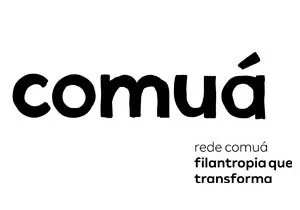Full house receives Ivone Gebara in Round Table Dialogue about the Secular State and feminist theology
15 de June de 2016A theatre performance by the Bumbá Group, an organization supported by CESE which works in performance art with young people from Pituaçu (a periphery neighbourhood in Salvador ), opened the Round Table Dialogue “Secular State: The Feminist View of Ivone Gebara”. The event kicked off with sketches featuring several situations expressing rights violations suffered by women and historical feminist landmarks, involving the audience in discussions about the secularism of the State and feminist theology. Held last Thursday (19) at the Public Library in Barris, the event was run by CESE, with support from the Pedro Calmon Foundation, the State of Bahia’s Public Library and Radio FACED web from UFBA’s Faculty of Education.
Sônia Mota, CESE’s Executive Director was host for the night and contextualized the historic moment currently experienced in Brazil. “Currently we have the most conservative Congress since 1964. The achievements we have made thus far, after so many struggles, are under serious threat. We have felt the activities of the Beef, Bullets and Bible (BBB) caucus. We would like to highlight the strong attack on feminist movements and the invisibilization of their agenda of the struggle for rights, with the gradual erosion of the rights of women, the LGBTT, and the black population. What does the withdrawal of school discussions about gender and sexual identity, removed from the National Education Plan, mean? In their current form, our political representatives pass laws based on the bible and distort Christian foundations in order to benefit certain churches and delegitimize other religious sectors or even to impose their faith and beliefs on all of society”, explained Sônia, providing a historic overview of the reversals of recent years.
For the Round Table Dialogue, Ivone Gebara inverted the usual lecture programme of feminist philosophy and theology, calling on all the participants to ask her questions, so she could respond to them one at a time, during the discourse, jointly constructing the process of reflection. Questions arose: “How can I live my faith in the political world?”; “With the withdrawal of the gender discussion from the State Education Plan’s curriculum, how can we talk of a Secular State when the name of God has been used to take away women’s rights?”; “What is the difference between the Secular State and the Atheist State?”; “How to live my faith in the political world, how does this separation work?”
In the first part of the Round Table, Ivone focused on discussing interference from religious convictions in political decisions. “Politicians are selective in using the name of God. The basis of the Gospel is ethics, in other words, if you have bread, you break it in two. If you have land, you share it. What they access, in truth, is the theology of power. The image of God is used as an alter ego”, the feminist theologian determined, adding that simply having a Secular State is not the point, but education is also required to attend to the common good.
In Gebara’s view, having a Secular State does not mean extinguishing the importance of religious culture. It is sufficient to observe how Buddhism is relevant to the Indian culture or Shintoism in Japan. The theologian refuted radicalism, indicating how the Secular State can invite us to reflect on cultural pluralism.
She also alerted the audience to how the discussion about the Secular State has ended up centred on the judicial field. “The assertion of the Secular State should contain a range of rights, such as those of women, who must enter as part of the very concept of the Secular State: the right to our bodies, to our decisions, to our physical and emotional health”.
“We women have to talk more, more and more”
The entrance of women into the public, political arena is the moment which Ivone Gebara defines as the beginning of discussions about feminism.
“You know why women have difficulties obeying women? Our emotions have been trained to tell us that this is not our place and men are trained to think that this is no place for women. Our formulations are not always made by reason, they pass through our emotions as well”. For this reason, the philosopher added, for many men, women do not have rights, it is as if their rights are being usurped by women. “That is why there are so many people who swear at the president elect without realising it. And if you ask why, if you insist, you see that the answers have no substance”, she explained.
Ivone completed her line of reasoning, providing evidence that, for many men, the Secular State is merely political – politically limited to a political concept. While, for women, it is related to the liberty of their bodies. “But this concept [the latter] does not enter the concept of the lay State in our Constitution”.
“I propose effective changes for women. It is not enough to assert that the State is secular, we need to know what meaning we give to secularism, demanding, provoking action, denouncing. We women have to talk more, more and more,” she said at the end, inviting those present at the Round Table Dialogue to act more incisively in the public sphere in order to strengthen rights in the field of gender.




















